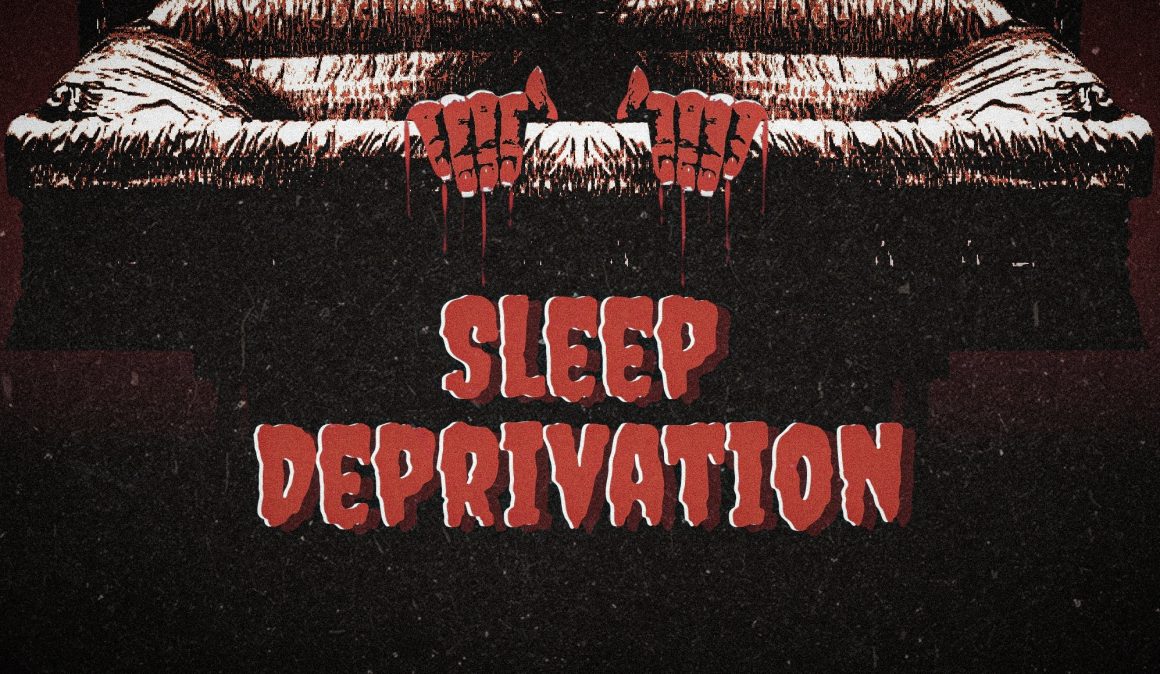
Twin Terrors: How caffeine and sleep deprivation are harming your body
By Hannah Caparino and Ilana Van der Merwe, October 24 2024—
Caffeine
Caffeine is a stimulant that has had a notorious reputation for keeping people awake for hours on end and is constantly debated on its benefits. The stimulant can most commonly be found in consumable forms, examples being in drinks like coffee or energy drinks. While caffeine may be a tool to keep students awake during the day, its addictive traits may allude to health issues later on.
Beginning with caffeine’s effect on the brain, its immediate effects saw an increase in the glutamatergic synapses in the hippocampus. The glutamatergic system is primarily in charge of the brain’s excitatory response and learning ability. By introducing caffeine into the glutamatergic pathway, it allowed for better retention and conditioning because it expanded how glutamate would react to and transmit information in the brain.
Reviewing caffeine’s effect on the heart can also determine its practicality. Despite the generally negative opinion around the drink, coffee can decrease the risk of heart irregularities like cardiac arrhythmias and atrial fibrillation. Recent studies say that moderate doses of caffeine, approximately one to two cups, would be better for the heart because it has higher antioxidants and anti-inflammatory properties. People afflicted with any form of arrhythmias saw no increased risk when monitoring their coffee intake due to coffee’s antiarrhythmic characteristics. Although there are a number of advantages regarding coffee and caffeine, high and unregulated doses may overstimulate the nervous system and can become harmful to the cardiovascular system.
Caffeine in energy drinks have begun to enter the conversation because of how caffeine has started to impact the younger generation. The use of energy drinks at a young age saw developments in a variety of health problems that are due to the presence of caffeine and other stimulants in the drink. Although energy drinks became prevalent due to its ability to create a high, but temporary burst of energy, many haven’t taken into account the drink’s wider aftereffects including insomnia and poor oral health. Insomnia was a primary focus as it became the result of overreliance, impacting an individual’s emotional regulation, and ability to receive and process information, because the senses were being overworked.
Overall, caffeine, while presented in seemingly harmless forms, should be consumed responsibly. Although there’s a multitude of benefits, if taken in excess, caffeine can lead to more harm than good.
Sleep deprivation
Shared by William D. S. Killgore and Mareen Weber in their chapter of Sleep Deprivation and Disease, since the 1960s, westernized societies have seen a steady decline in average hours of sleep a night. With less than half of university students getting seven hours of sleep according to Western University, here are some effects and outcomes of sleep deprivation.
A long day of lectures, studying and working with fellow students, can be emotionally draining. However, add two or three nights of lowered levels of sleep and you’re increasing your chances of having a harder time socializing. Decreased sleep levels also decrease your ability to emotionally regulate — working cooperatively, managing high stress environments and regulating your emotional responses to these things becomes increasingly difficult.
Studies show that individuals with sleep deprivation experience higher wake-state instability, which is when sleeping initiatives temporarily occur in a wakeful state. This involuntary function of the brain can influence reduced attention span, lowered sensory functions like taste or auditory observation and even reaction times.
It should be made aware to students that long term sleep detriment can lead to the development of poor mental health symptoms. Found to be a factor in the development of depression, anxiety and suicide, insomnia and sleep deprivation strongly correlate to mental well-being.
As students enter the workforce and possibly become familiar with shift work, they should be made aware of the long term risks of constant sleep deprivation. With decreased sleep comes increased stress, which in this case links to elevated cortisol levels. The increase of this hormone is triggered by sleep deprivation and is known to lead to long term issues like cardiovascular disease. This can show up in forms of high blood pressure, metabolic change, type two diabetes and sleep apnea.
One of the most dangerous outcomes of sleep deprivation is drowsy driving. Statistics suggest that 28 per cent of individuals ages 16–19 and 35 per cent of individuals ages 20–24 admitted to nodding off while driving. With drowsy driving resulting in roughly 1,550 fatalities and 40,000 annually in the US according to Dr. Nishi Bhopal and Dr. Umakanth Khatwa, sleep deprivation highly impacts the safety of individuals and the people around them.
Oftentimes, a night’s sleep takes second priority to extra studying, but with every hour spent awake comes a cost. Although the short term symptoms of sleep deprivation do not seem to impact the busy lives of students heavily, side effects can be highly detrimental to mental and physical health.
There is a strong interconnection between sleep deprivation and caffeine dependency. Typically in students, where you find one, you also find the other.
On one side, sleep deprivation caused by stress, workload or other factors can lead to an alternative substitute for energy. With repeated use, a caffeine dependency can quickly become an adversarial proxy for a night’s sleep.
On the other hand, caffeine consumption can create an unhealthy cycle due to the stimulant’s ability to cause a temporary feeling of increased energy in an individual. Without the proper alternatives to regain energy, sleep deprivation and insomnia are the result of a large intake of caffeine.
By tracking hours slept as well as measuring caffeine intake, one can address the struggle of sleep deprivation and caffeine dependency.
Follow the attached resources for help with sleep deprivation issues like insomnia, sleep apnea or stress.
No matter what the substance or stimulant, there are resources to help with the recovery process, click here for more information.
